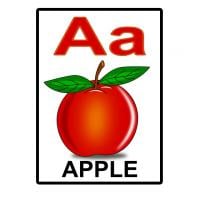Do English Teachers Need to Be Able to Speak Their Students' Native Language?

There are many types of people who decide to teach abroad and share their English skills with children across the world. Some do it for a year or so because it grants a work visa and a steady job in another country. Some people love to teach. And some want to give something back to the country they decided to reside in.
Some people like to teach English in several countries over their career and therefore don't learn the local language. Some people stay in the same country for years, working for the same company and learning the local lingo. This article takes a look at some of the good sides and bad sides of being able to speak the students' first language.
Comprehension Check
When you teach new phrases and words, it's important to check that the students understand what they're learning. Anyone can parrot a phrase, use perfect pronunciation and intonation, without knowing what they're saying. Children, especially, might do this. In this case, it's important to check their comprehension. For word types such as nouns you might use flash cards (e.g. a picture of a dog to describe 'a dog'), but this won't apply to some phrases.
Positive: this is a situation where it's a time-saver to know the students' language. You can simply say "what's 'goodbye' in (your language)?" and if they reply with their native version of 'goodbye', you know they understand what you've taught them.
Negative: Checking comprehension the way described above is useful, but it can be better for the students to give you alternative phrases to prove their understanding if you don't speak their language. For example, "what's 'see you' in (your language)?", Student A answers "goodbye" and starts waving. This proves their understanding, and also gave them the opportunity to use another phrase they already knew.

Communicating with Parents or Guardians
If you work in a language school or cram school as opposed to a public school, it is likely that you'll meet the parents or guardians of your students before or after class.
Positive: If you can speak the local language, it's easier for you to tell the parents, who may not speak English, how their child did in the lesson, report on behaviour, or explain something like homework.
Negative: Some companies don't like their English-speaking teachers talking the local language, especially in an English school where, as a rule, the only language that should be spoken is English. It can be difficult to make yourself only speak English, especially if you're wanting to improve your own second language.

Knowing what the students are saying when they're talking amongst themselves
Students, especially younger children in larger classes, might chatter amongst themselves in their local language.
Positive: If you can speak their language well enough, you'll know what they're saying - whether they're insulting you, or discussing what they want for Christmas.
Negative: You might end up wanting to reply in the local language, which in many companies is frowned upon, and it takes away time speaking and learning English.

In which part of the world would you like to teach English?
When the student has an answer, but they don't know how to say it in English
You may ask a question with many different possible answers, such as 'what's your favourite food?'. There will probably be a time where a student has an answer that they know in their own language, but don't know how to say in English. This is a learning opportunity for them, so that they can honestly express themselves next time they're asked that question, instead of just using vocabulary that they already know.
Positive: A good thing about knowing their first language is that you can translate for them. This saves time, and you can quickly teach it before moving on.
Negative: However, if you just translate for them, it can take away more learning opportunities for the students. If your student says a word in their local language that they want to express in English, there are ways of translating it without your own knowledge or using a dictionary. You can ask the other students if they know what it is in English, and if they don't, get the students to describe it to you. With the food example, they can describe their favourite food as 'sweet, red fruit' and you, the teacher, can work it out. This gives the students an opportunity to use adjectives they know, and practise explaining things in English. Of course, this probably won't work for beginner classes.

Ideally, a teacher knows how to speak their students' language, but uses it as minimally as possible during class. This isn't always possible, however; a person who teaches for a year in China, then in Japan, then in Thailand then in the Philippines cannot possibly learn the local language of each country perfectly for the twelve months they're there.
But if a teacher lives in the same country for many years, it's ideal for them to know at least some of the language in times of need, such as comprehension checking.
© 2014 Poppy





